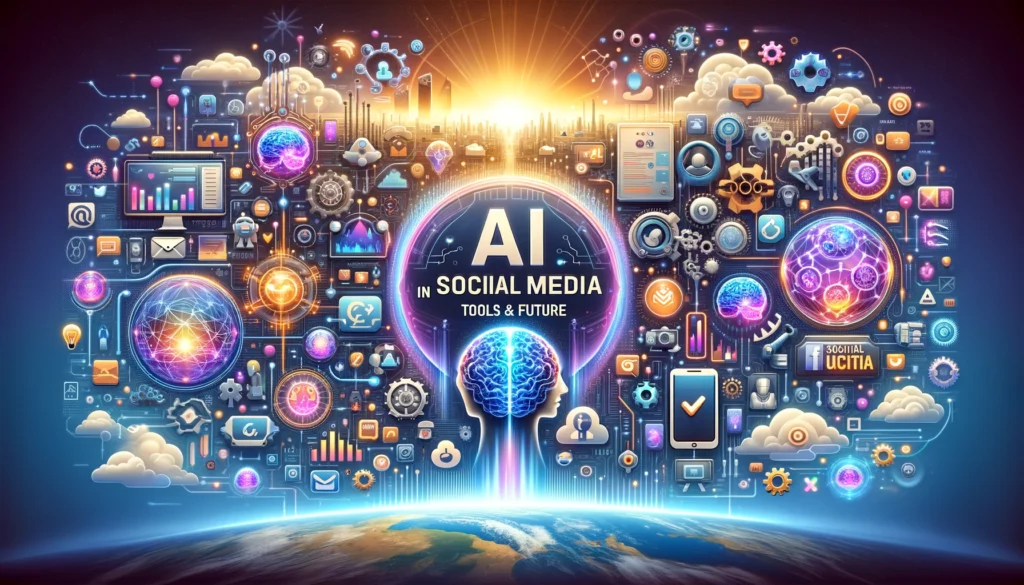In today’s digital-first world, social media Ai Marketing platforms have evolved into powerful marketing tools. But with millions of brands competing for attention, standing out requires more than just posting consistently. This is where AI-powered marketing steps in. Artificial Intelligence is transforming how businesses engage with audiences, analyze data, and drive conversions across social media.
What Is AI Marketing on Social Media?
AI marketing refers to the use of artificial intelligence technologies to automate, optimize, and personalize marketing tasks. On social media, AI can help businesses:
- Analyze user behavior and engagement patterns
- Create personalized content and recommendations
- Automate ad placement and targeting
- Monitor brand mentions and sentiment
- Improve customer service via chatbots
Key Benefits of Social Media AI Marketing
1. Advanced Targeting and Personalization
AI allows businesses to analyze user data in real-time to create highly personalized campaigns. It identifies what content works best for different audience segments, increasing engagement and ROI.
2. Time-Saving Automation
From scheduling posts to managing ad campaigns and replying to comments, AI reduces manual work and improves efficiency. Tools like Buffer, Hootsuite, and Sprout Social now integrate AI to optimize posting times and content strategy.
3. Predictive Analytics
AI can forecast trends and user behavior based on past data. Brands can use this insight to stay ahead of competitors by launching timely campaigns and content tailored to audience preferences.
4. Enhanced Customer Service
AI-powered chatbots on platforms like Facebook Messenger or Instagram can handle thousands of customer interactions simultaneously. They provide instant replies, solve common problems, and even guide users through the purchase journey.
5. Better ROI on Ads
AI can automatically test different ad variations (A/B testing) and optimize the best-performing ones. Platforms like Meta Ads and Google Ads use machine learning to target audiences more accurately and allocate budgets efficiently.
Popular AI Tools for Social Media Marketing
Here are some AI tools widely used in social media marketing:
- ChatGPT / Jasper.ai – Content generation
- Canva Pro (with Magic Write) – AI-assisted design and text
- Lately.ai – Creates multiple social posts from long-form content
- Brand24 / Mention – AI-powered social listening
- Adzooma / Revealbot – AI for ad management and optimization
Use Cases Across Different Platforms
Facebook and Instagram
- AI helps in identifying trending content and peak posting times.
- Businesses can create custom audiences and retarget users effectively.
Twitter (X)
- AI-powered sentiment analysis tools track public opinions in real-time.
- Brands can respond to trends immediately with AI-curated content.
- AI suggests connection leads and content that aligns with professional interests.
- It improves B2B targeting for ads and outreach campaigns.
TikTok and YouTube
- AI recommends video titles, descriptions, and thumbnails.
- Helps creators optimize reach through analytics and trending data.
Challenges of Using AI in Social Media Marketing
While AI offers numerous advantages, it also presents some challenges:
- Data Privacy: Over-reliance on personal data can lead to compliance issues (e.g., GDPR).
- Authenticity: Overuse of AI-generated content can feel impersonal or robotic.
- Bias in Algorithms: AI systems can unintentionally favor certain groups or exclude others.
The Future of AI in Social Media Marketing
As AI technology evolves, we can expect even more precise targeting, fully autonomous content creation, and smarter analytics. Voice search, AR filters, and personalized video content are all areas being reshaped by AI.
Businesses that embrace these innovations will not only save time and money but will also deliver more meaningful and impactful experiences to their followers.
Final Thoughts
Social media AI marketing is not a trend—it’s the future. By integrating AI tools into your digital strategy, you can unlock deeper insights, automate time-consuming tasks, and engage users like never before. However, it’s essential to maintain a balance between automation and authenticity to build long-term brand trust.

